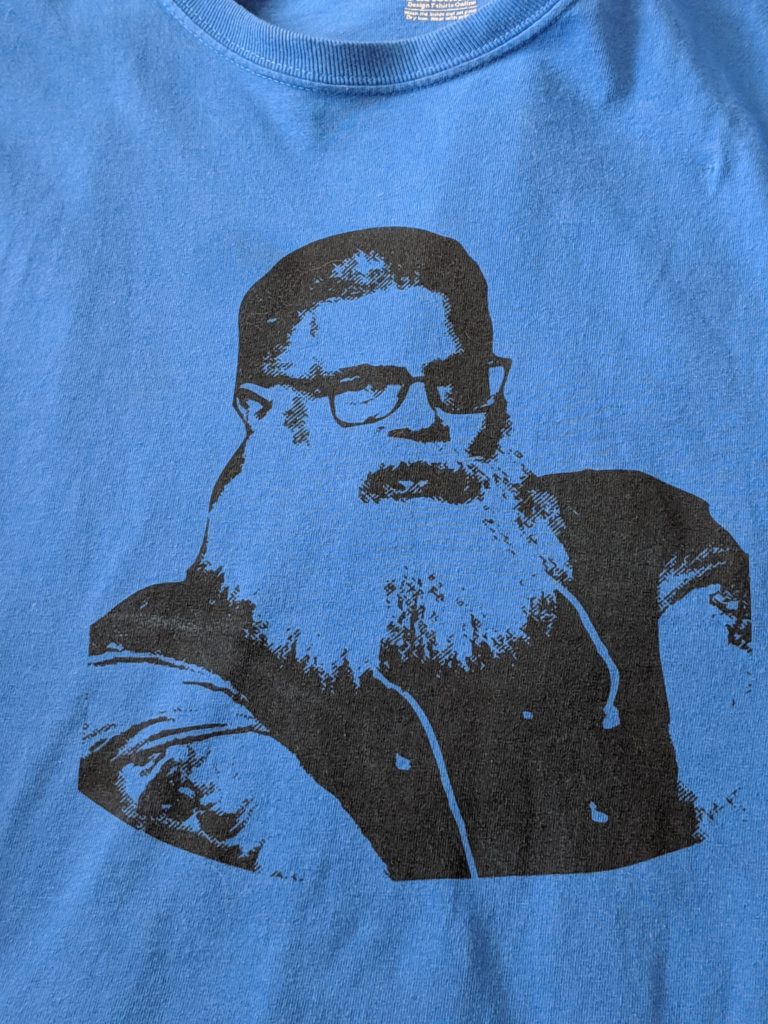
DAY FOUR
By Chris M. Barkley:
Field Notes
- Damn it, why didn’t I pack a pair of blue jeans? I mean, blue colored blue jeans? It would have SO matched the shade of blue of my Samuel R. Delany t-shirt. Ah, so it goes.
- The weather this morning was brilliantly good. And then came the rain squalls. I had such high hopes. Is this what makes the Irish, Irish?
- In case anyone was wondering, my identifying pronouns at the Business Meeting were HE, HEY YOU and THAT GUY.
- I am convinced that one of my three flatmates is a cultural saboteur; for several days now I have placed the toilet paper in the bathroom to roll from the top, only to turn late and it’s been reversed. I have vowed to discover who the culprit is BEFORE I LEAVE THIS ISLAND! Enough said.
- Speaking of the loo, my first encounter with toilet in the apartment was startling to say the least. As I flushed, an epic Angel/Niagara/Victoria Falls torrent of water crashed into the bowl, scaring me out of my wits. I sure hope that’s all greywater and not the drinking sort.
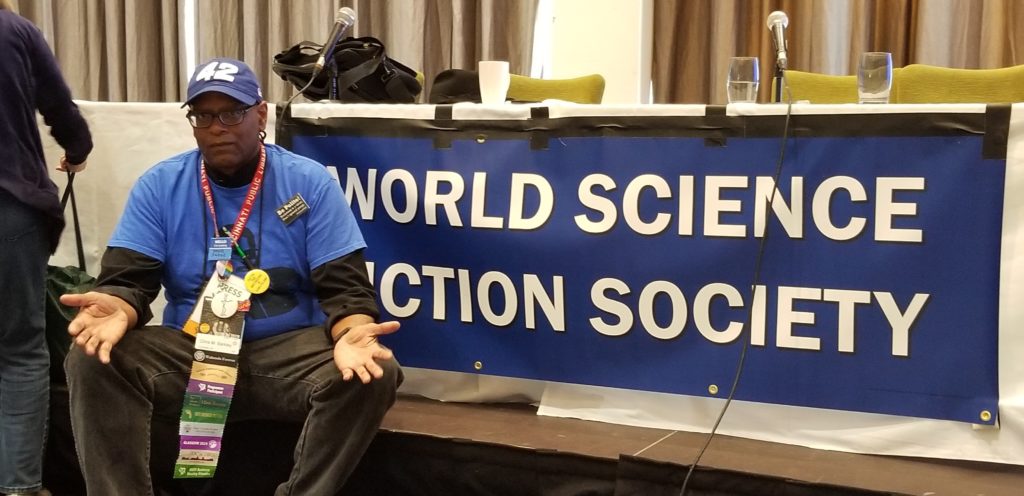
Juli and I saw our good friends Robbie Bourget and John Harrold on the tram this morning. They were headed to the Business Meeting to hear the announcement of the Site Selection team of the winner of the 2021 Worldcon bid. They looked remarkable happy at that moment so I suspect that they were either not working or their jobs were completed and they were enjoying themselves…
The meeting started promptly and, as expected, Washington D.C. was the overwhelming choice with 798 votes.
The 2021 Worldcon has been dubbed DisCon III and will be held from August 25 (MY BIRTHDAY, WooT!) to August 29. The Guests of Honor are author Nancy Kress, Baen Editor in Chief Toni Weisskopf, Uber Fan Ben Yalow, with Special Guests Malka Older and Sheree Rene Thomas. Co-Chairs Bill Lawhorn and Colette H. Fozard promised that an Artist Guest of Honor will be announced at a later date.
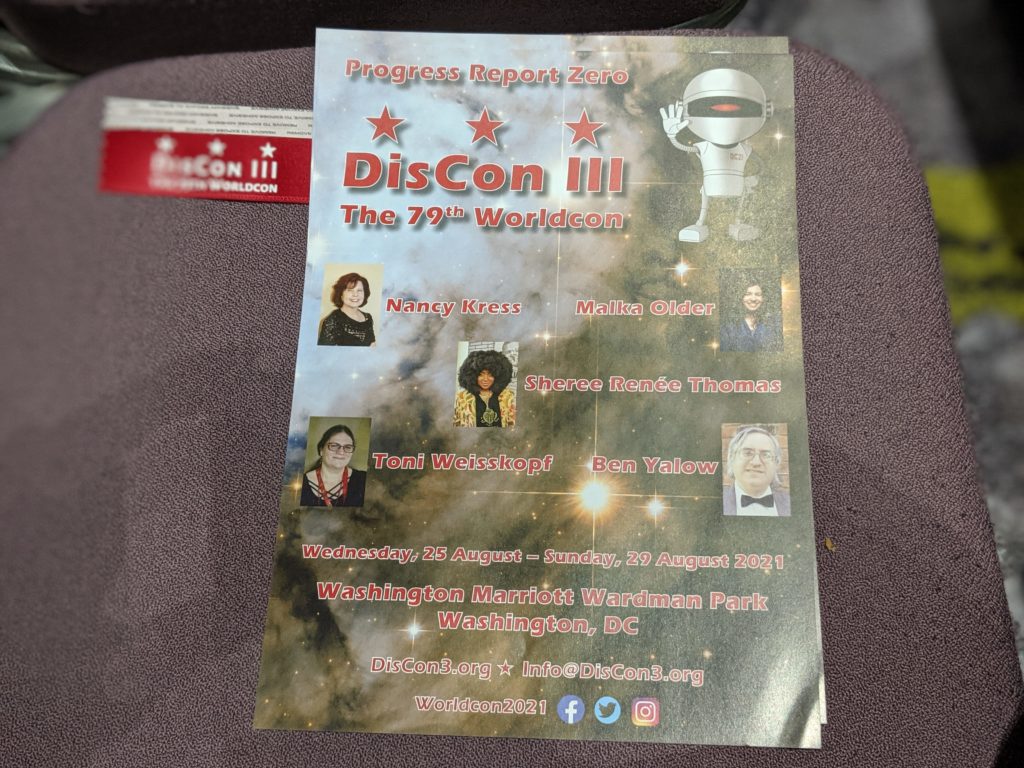
PR #0 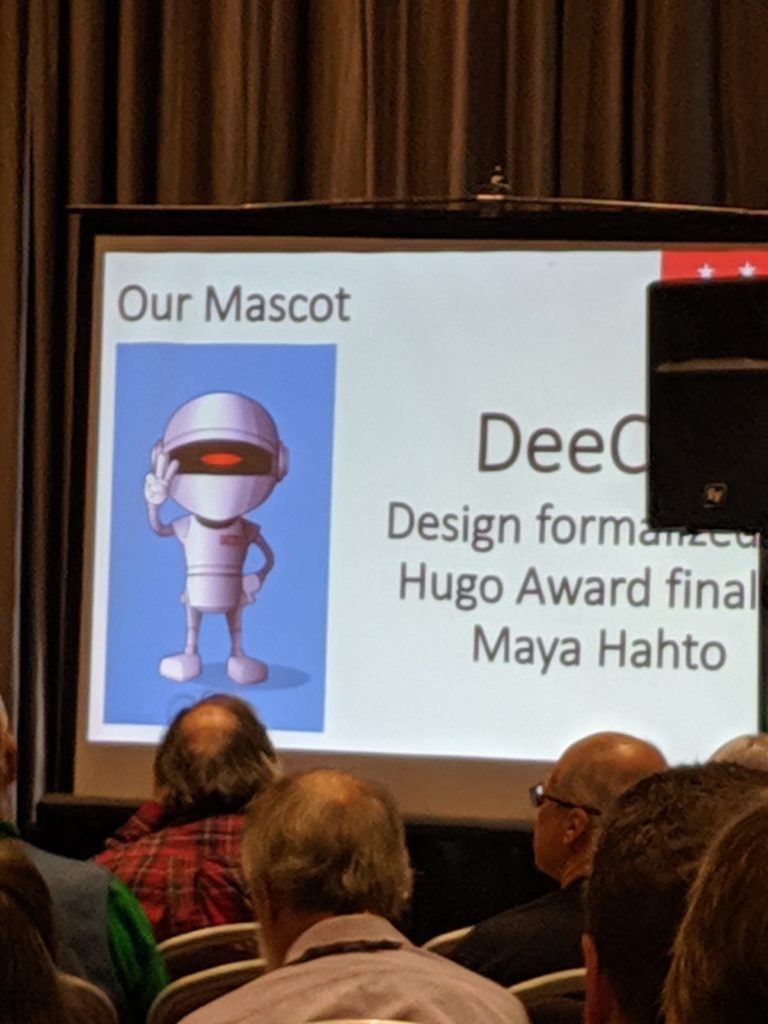

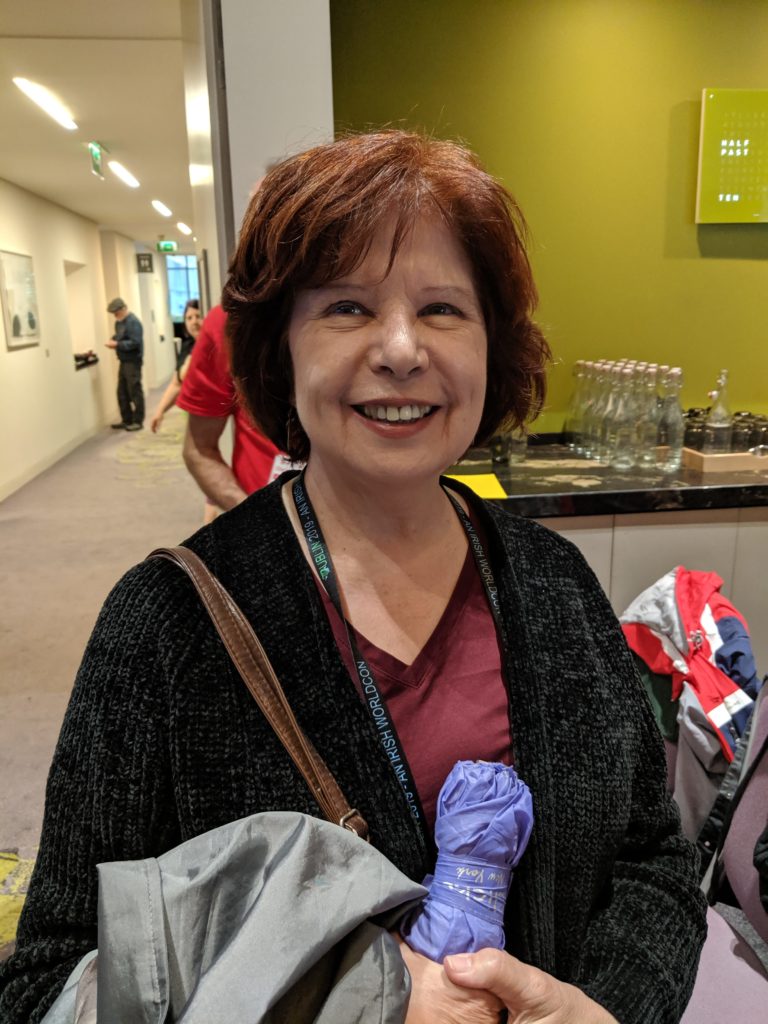
The runner up results in themselves were whimsical and amusing in themselves:
None of the Above 18
Minneapolis in 73 3
Tampere in 2032 in 2021 3
Peggy Rae’s House 2
Rapid City, South Dakota 2
Xerpes 2010 2
Any Country That Will Let Me In 1
Anywhere NOT in the United States 1
Beach City 1
Boston in 2020 Christmas 1
Free Hong Kong 1
Haimes, Alaska 1
Helen’s Pool Cabana 1
I5 in ‘05 1
James Bacon’s Living Room 1
Laconia Capital City, Laconium Empire 1
Malmo, Sweden 1
Ottawa 1
Port Stanley, Falklands 1
Ratcon in 2002 1
One of these days a joke bid is going to win and there’s going to be trouble. I must also say that as an American, I was surprised that there weren’t a lot more protest votes against the DC bid considering our, let’s say, turbulent political situation at the moment. The mere thought of the current president showing up unannounced is a logistical and political nightmare none of us want. But, we’ll see, I suppose.
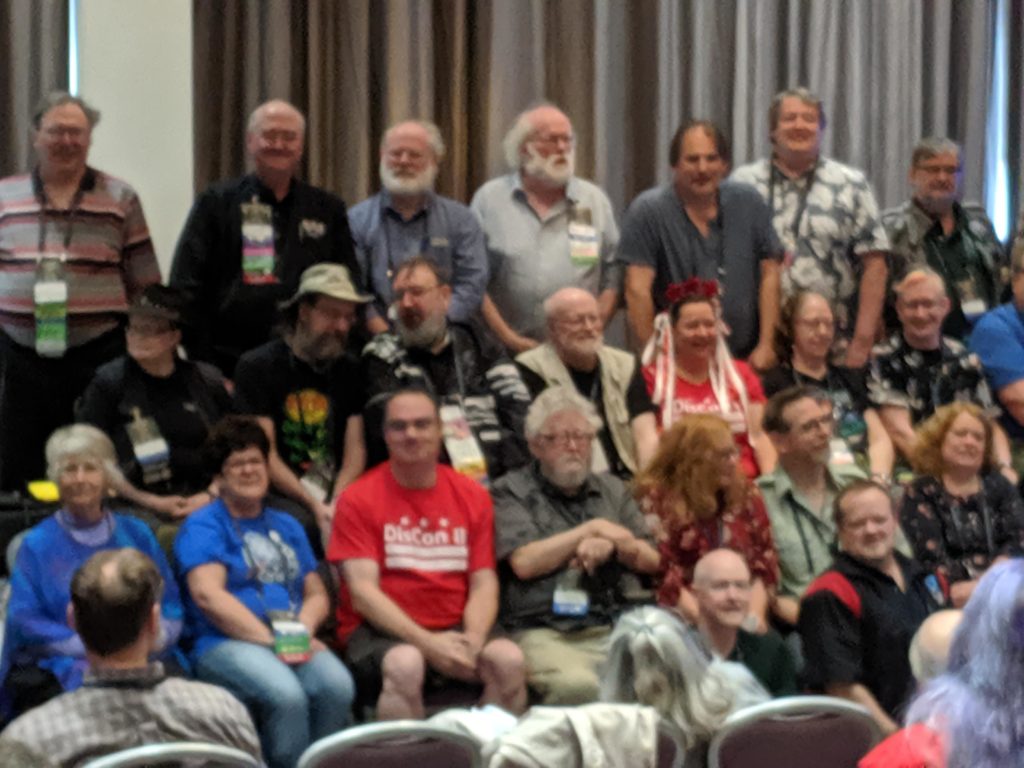
Past Worldcon Chairs photo session 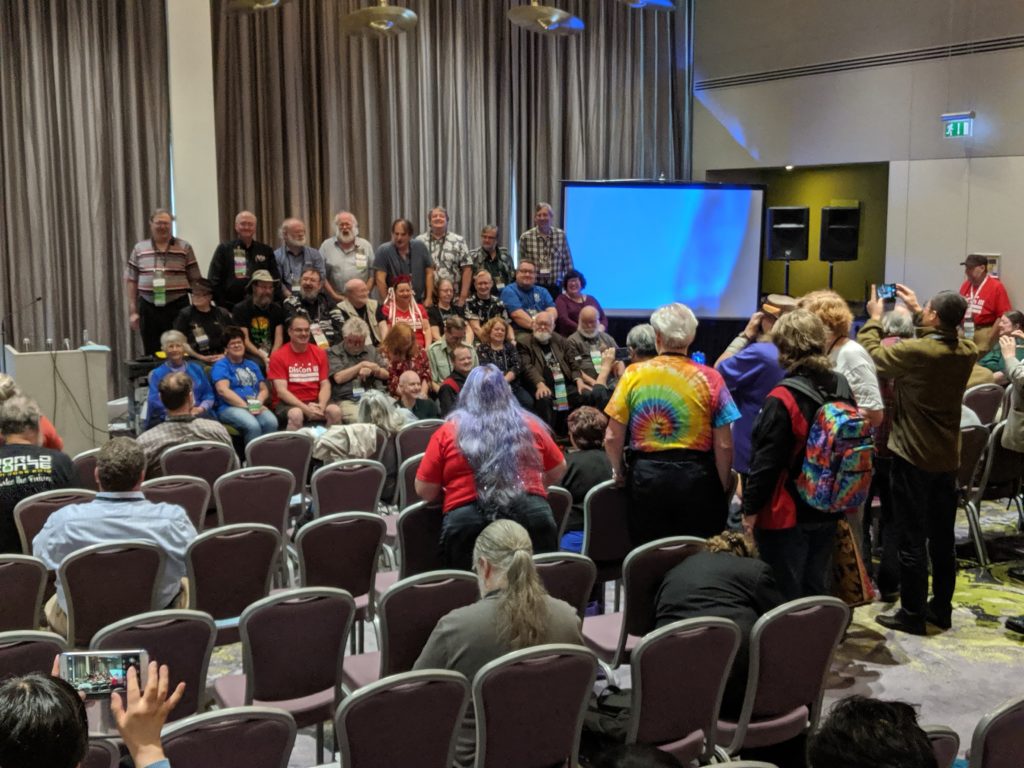
Past Worldcon chairs 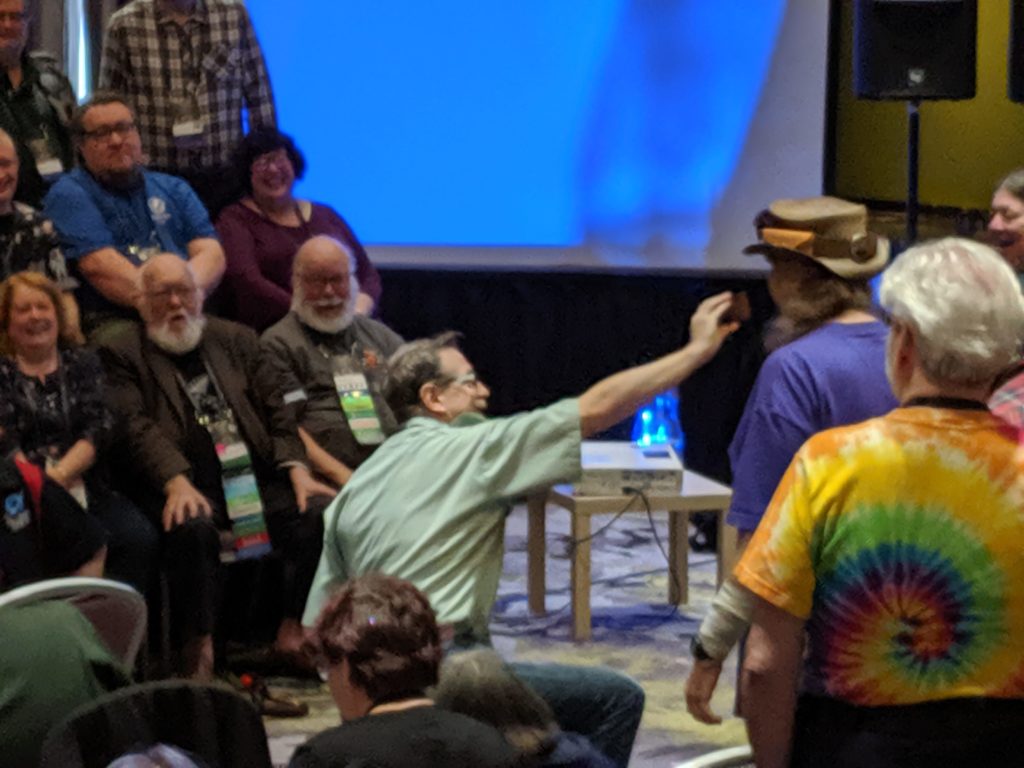
Soon to be past Worldcon chair James Bacon takes a selfie
Worldcon 76 convention Chair Kevin Roche presented pass along checks of $10,000 (US) to the con-chairs of Ireland (James Bacon) New Zealand (Norman Cates) and Washington. This generous donation was done despite the pending litigation brought against Worldcon 76 by Jon Del Arroz, who filed a lawsuit alleging defamation after being banned from the event.
Mr. Roche promised that more funds would be distributed to current and future bid when litigation has been concluded.
In other news, the group backing an amendment to establish a Best Game or Interactive Experience category suffered a minor setback when the members of the meeting voted to refer the legislation back to the Hugo Study Committee for another year discussion.
This was done in spite of a fairly extensive 60-page report compiled and written by the group sponsoring the category. I spoke to one of those sponsors, Claire Rousseau and several others who were there to see the outcome. They were all extremely upset that this proposal would not be discussed in a formal debate for at least another year or more.
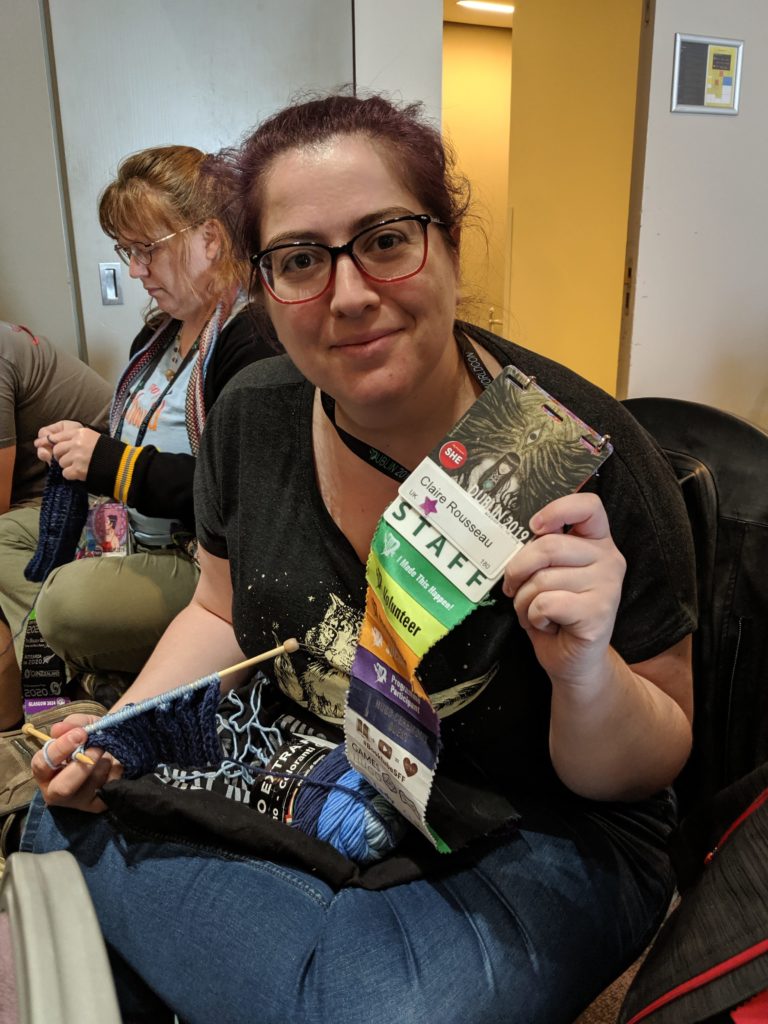
As a personal aside, I told them that I had been on the receiving end of these sorts of setbacks on numerous occasions and while they may be feeling disappointed right now, they should should remain vocal and more importantly, persistent, if they feel they have a just cause.
Mark Richard’s advisory motion to also issue an award to translators of Hugo Award winning works was also soundly rejected by the attending members. After the vote Mr. Richard, was approached by Jo Van Ekeren and Joni Brill Dashoff with some helpful suggestions on how to make the proposal clearer and more palatable to the members who opposed it.
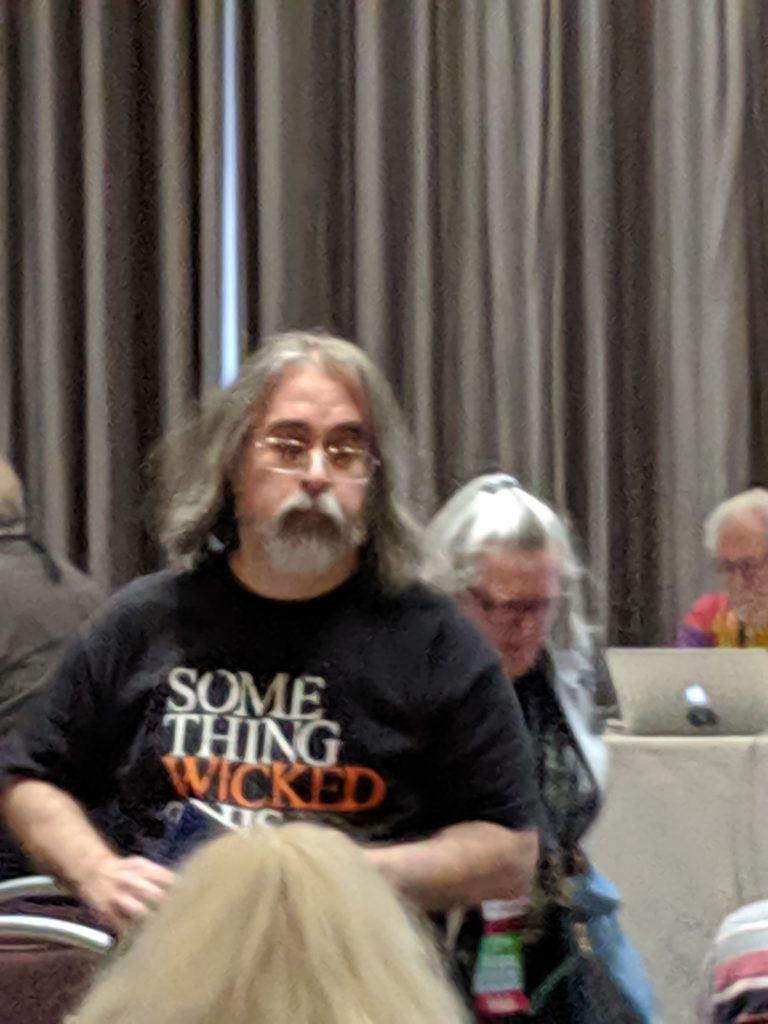
Mark Richards 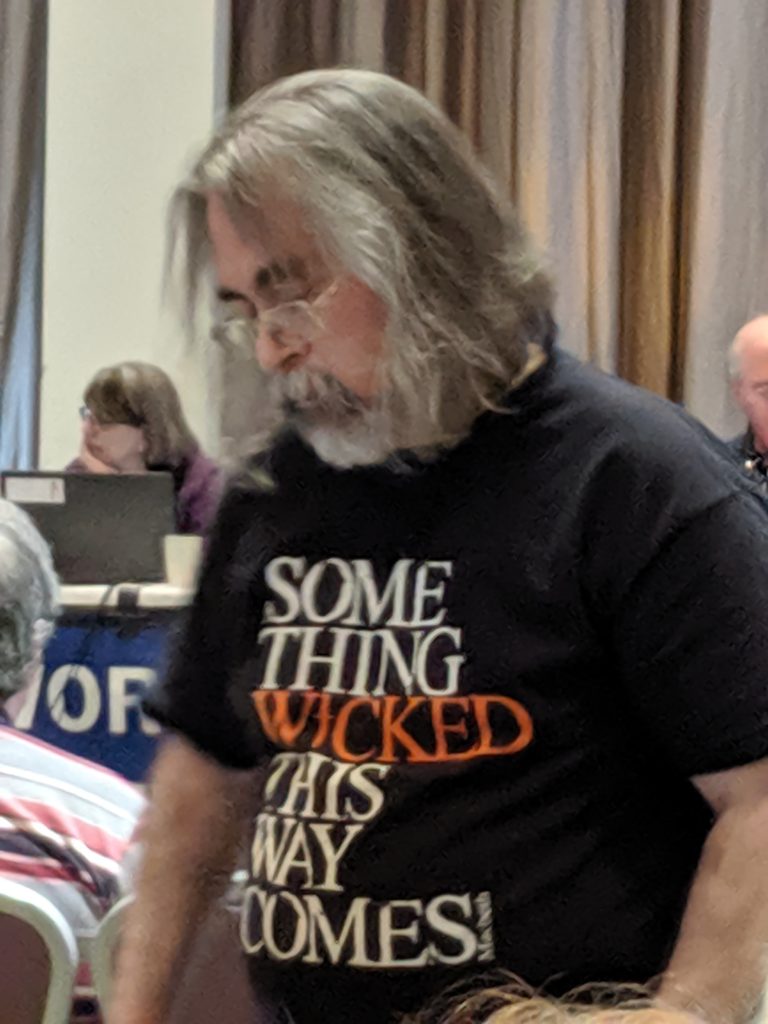
Profound disappointment does not even begin to describe how I felt about this, but I will refrain from editorializing about this until my final report.
By a fortuitous coincidence, my final Worldcon panel, “Get Us Out of the Twilight Zone: the Work of Jordan Peele,” was scheduled right after the Business Meeting in the same room. My panelists were media critic and Abigail Nussbaum (who won the 2017 Hugo Award for Best Fan Writer), Dr. Andrew Butler, a distinguished film critic from the UK and Dr. Wanda Kurtcu, who organized the POC meetup the previous day.
Looking through my bag, I could not find the placard with my name printed on it, which we were supposed to keep and use at each panel. Luckily, I found a folder filled with name placards and not only found one with a blank side to write on, I also picked up an autograph as well.
Over the course of our hour, we took an in depth look at Mr. Peele’s first two films, the Academy Award winning horror film Get Out and Us, a more overtly ambiguous fantasy film. I believe that while Us is a more ambitious movie, Get Out had an edge in being my favorite because of its straightforward and take no prisoners narrative.
Doctor Butler had not seen the first season of the revival of The Twilight Zone so when the other panelists and I discussed the episodes we were a little diligent not to drop too many spoilers for him and the other audience members. Doctor Kurtcu pointed out rightly that Twilight Zone, like the original Rod Serling series and other shows like Black Mirror, darkly reflect what is going on in the world today.
Ms. Nussbaum, like myself, were not really ardent fans of the horror genre but it seems as though Jordan Peele has a true artistic vision to express that is striving to transcend the usual boundaries of genre.
Towards the end of the session, an audience member said that Mr. Peele’s next project was a reboot of the Candyman film franchise.
“All right,” I said. “We all know what to do. NONE of us should say Candyman three times before the film is released.”
We appeared at the Press Room office a little before seven to pick up a lanyard for Juli so she could attend the Hugo Award Ceremony. We were delighted to find out that some of the press passes had not been claimed so now she could sit with me in the designated area. (This is not unusual; when I ran the Press Office, there were occasions where passes had not been picked up and I issued them to late arriving reporters or convention staff members who wanted a seat closer to the action.)
While we were waiting to be escorted to the press section, I came across UK author Paul Cornell, who I had not been in close proximity to since LAcon IV in 2006. I was particularly delighted to see him because he wrote one of my favorite Doctor Who stories of the modern era, the Hugo-nominated episode “Father’s Day”.
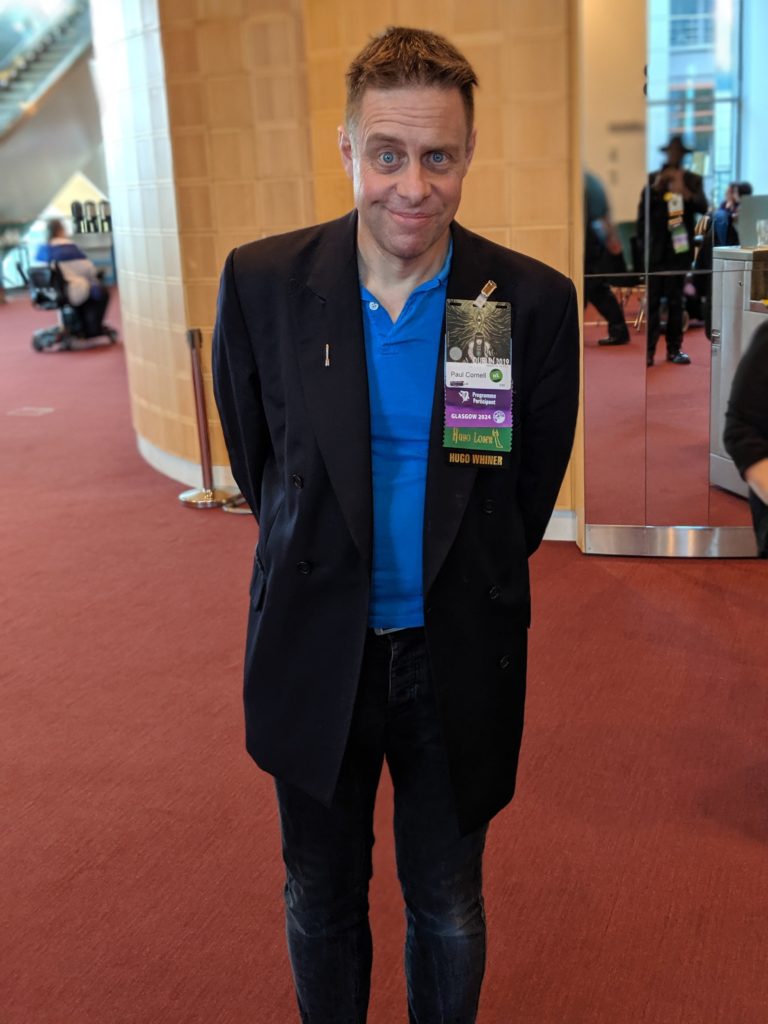
The Press section wasn’t that close to the action this year; it was located in the first three rows of the upper balcony just to the right of the center of the stage. What it lacked in proximity was made up for by its height, which provided a sweeping view of the stage.
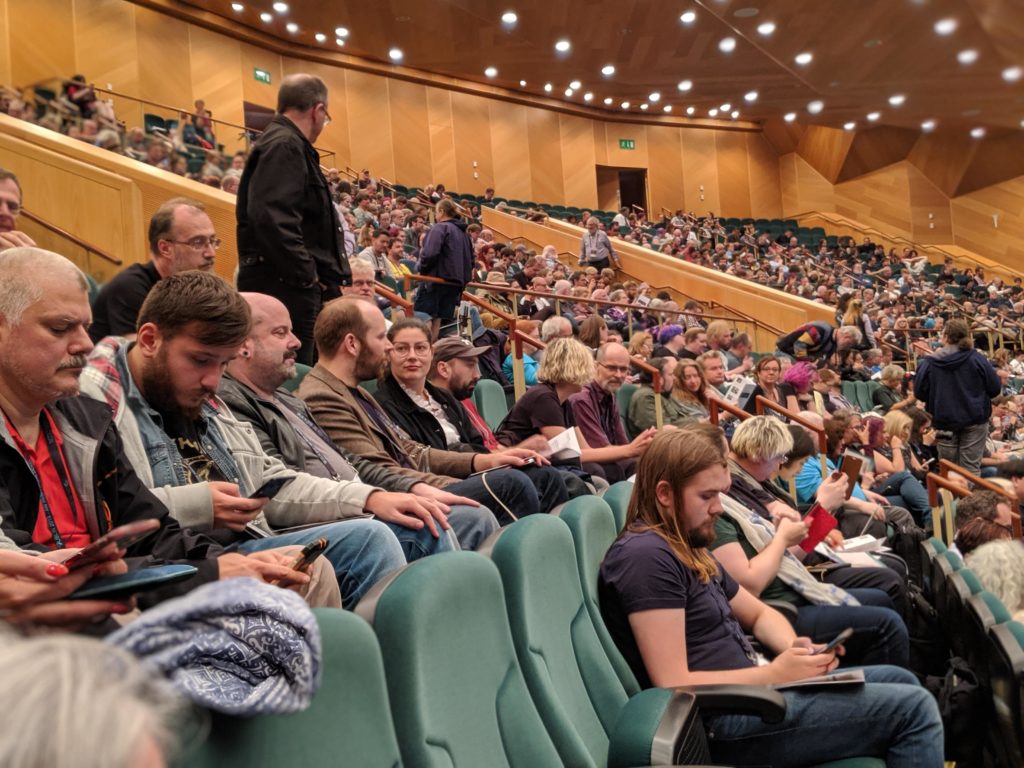
Hugo Ceremony audience 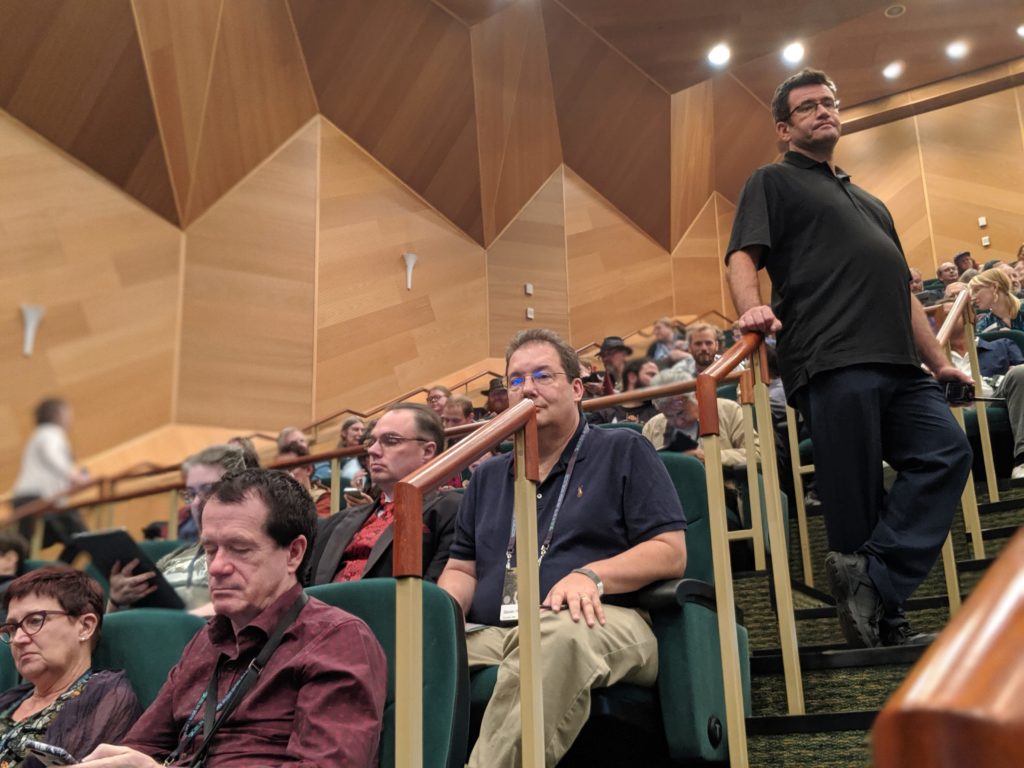
The first big surprise of the evening was the winner of the John W. Campbell Award for Best New Writer, Jeanette Ng. Not surprising that she had won the award, because she is an exceptionally fine writer and was favored in this category. Oh no. It was because of what she said in her acceptance speech:
John W. Campbell, for whom this award was named, was a fascist. Through his editorial control of Amazing Stories, he is responsible for setting a tone of science fiction that still haunts the genre to this day. Sterile. Male. White. Exalting in the ambitions of imperialists and colonisers, settlers and industrialists. Yes, I am aware there are exceptions.
But these bones, we have grown wonderful, ramshackle genre, wilder and stranger than his mind could imagine or allow.
And I am so proud to be part of this. To share with you my weird little story, an amalgam of all my weird interests, so much of which has little to do with my superficial identities and labels.
But I am a spinner of ideas, of words, as Margaret Cavendish would put it.So I need (to) say, I was born in Hong Kong. Right now, in the most cyberpunk in the city in the world, protesters struggle with the masked, anonymous stormtroopers of an autocratic Empire. They have literally just held her largest illegal gathering in their history. As we speak they are calling for a horological revolution in our time. They have held laser pointers to the skies and tried to to impossibly set alight the stars. I cannot help be proud of them, to cry for them, and to lament their pain.
I’m sorry to drag this into our fantastical words, you’ve given me a microphone and this is what I felt needed saying.<do the hat thing>”
You can see that “hat thing” (eventually) on YouTube or the streaming broadcast online.
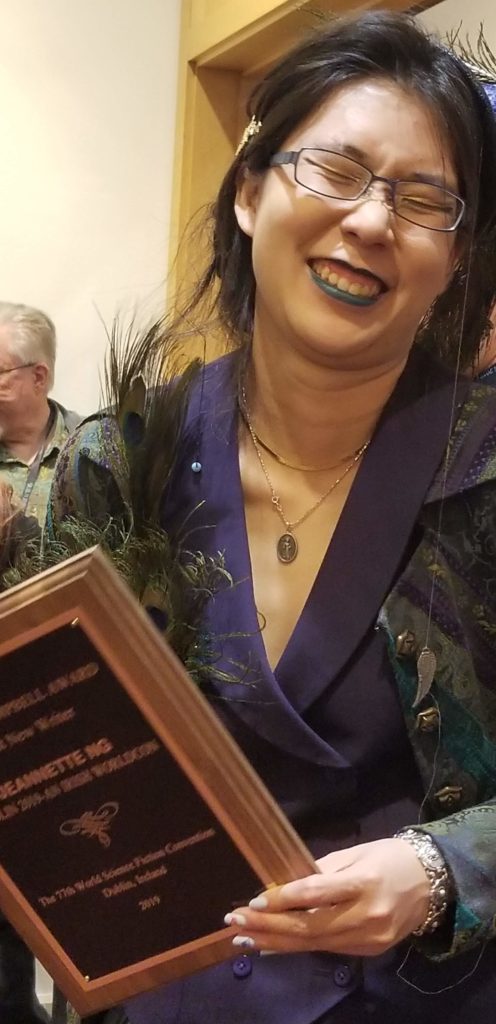
I was one of the people madly cheering this speech. I posted a meme on Facebook as she was still speaking: “Jeannette Ng is AWESOME!!!!!” Moments later, swept up in the moment, I posted another meme, “I’m just gonna say it: The Name of the John W. Campbell Award SHOULD BE F***KING CHANGED!”
To clamor atop a soapbox for a moment; NO, I am not advocating that the life and work of John W. Campbell, Jr. be scrubbed from history. But neither should we turn a blind, uncritical eye to his transgressions. When the winners of such a prestigious award start getting angry because the person behind it is viewed to be so vile and reprehensible, that ought to be acknowledged as well.
I think work and legacies of film director D.W. Griffith and H.P. Lovecraft have survived fairly intact since they have been deprived of their privileged status. And that is precisely the point; for decades JWC’s white privilege has given him cover to be adored by generations of readers, writers, editors, fans and scholars. The time has finally come to call him out.
Jeannette Ng said out loud what people have been either thinking and whispering for the past several decades. Rebecca Roanhorse’s speech last year in San Jose alluding to her discontent was the tipping point. Ms. Ng just picked it up and threw it over the edge. (Climbs off soapbox.)
Other momentous moments included Charles Vess double whammy for Best Professional Artist and the Special Category addition for Best Art Book, both for his meticulous and detailed art for the gigantic omnibus, The Books of Earthsea: The Complete Illustrated Edition. Becky Chambers’ Wayfarers won Best Series, a dizzying ascension for a writer who only had a draft version of her debut novel five years. She tearfully thanked her supporters, readers and the Hugo voters for making “room for her at the table”.
The Best Long and Short Form Dramatic Presentations went to popular front runners; the former to the Oscar winning animated film Spider-Man: Into the Spider-Verse and the latter by “Janet(s)” an excruciating funny episode of NBC’s farce/philosophy seminar The Good Place.
There was a lot of criticism that the Lodestar Award (or, as I call it, The Ursula K. LeGuin Memorial Award) either would not be very popular at all or might suffer from “award fatigue” by Hugo nominators in general reading community. Well, the statistics posted online after the ceremony show that there were 216 nominated books on 512 ballots. So, as far as I’m concerned, you can stick a fork in that theory, because it’s done.
Best Profession Editor went to the late Gardner Dozois. I must report that I did not vote for him; he was a fine person, a marvelous writer and one of the greatest, if not THE GREATEST, editor we are ever likely to see. But, I note, he had won fifteen Hugos for editing between 1988 and 2004. Now his estate has another award that he will never know of or enjoy. It’s fine for us to honor the dead, but not at the expense of the living.
Best Novel went to Mary Robinette Kowal’s The Calculating Stars, an alternate history story in which the 1950’s suffers a cataclysmic event and the “space race” is reframed is an actual struggle for the survival of the human race, led by women astronauts. I hope that this book, and its sequels, will not only endure but inspire future generations of young adults and grownups.
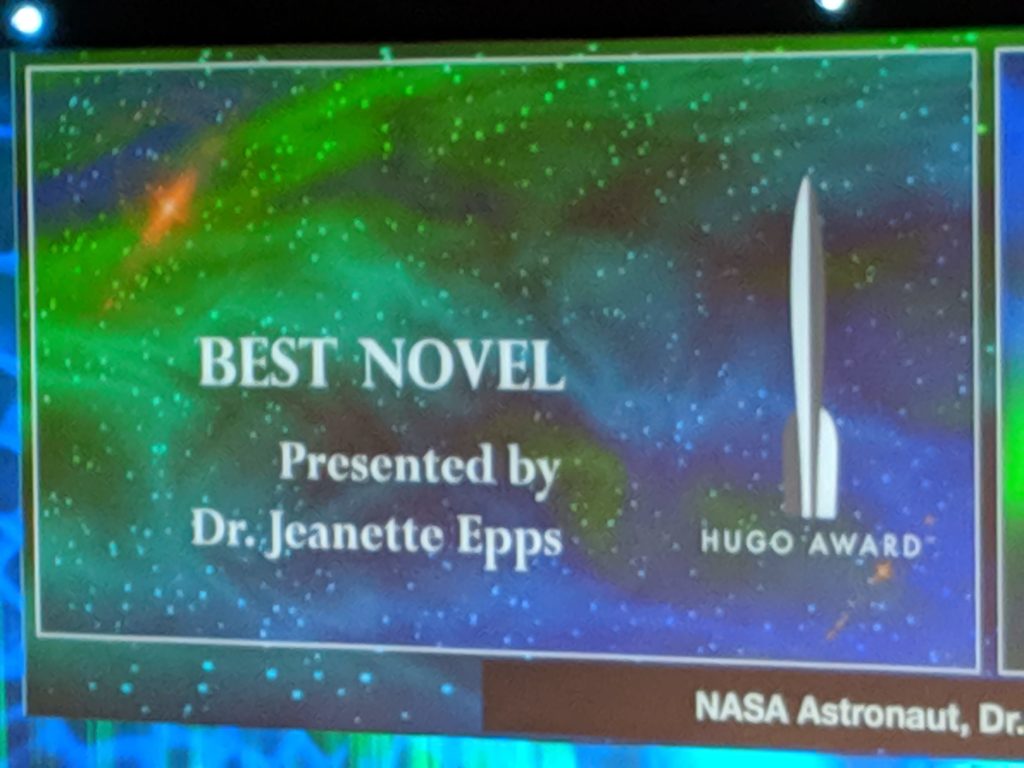
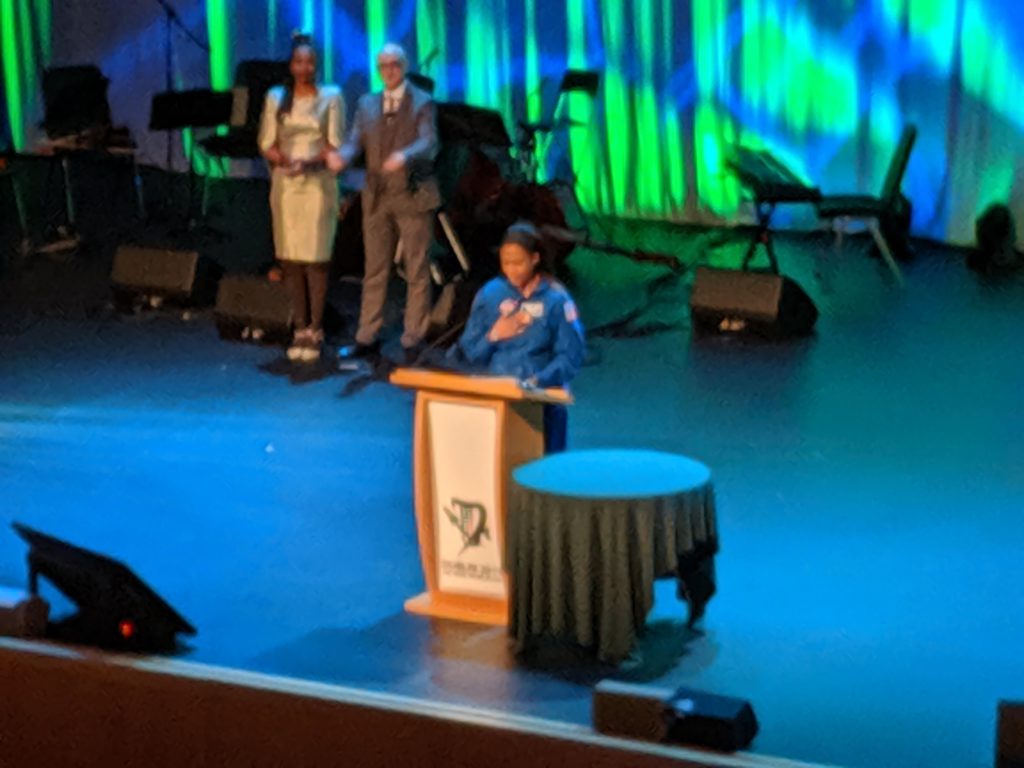
Dr. Jeanette Epps 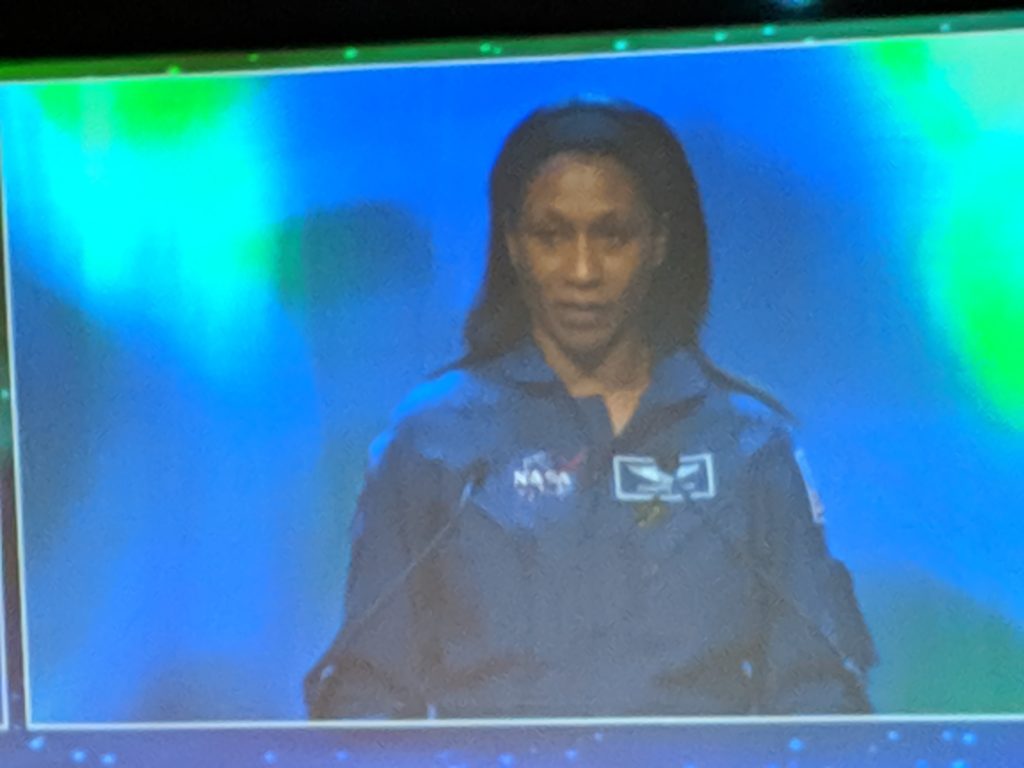
Dr. Jeanette Epps 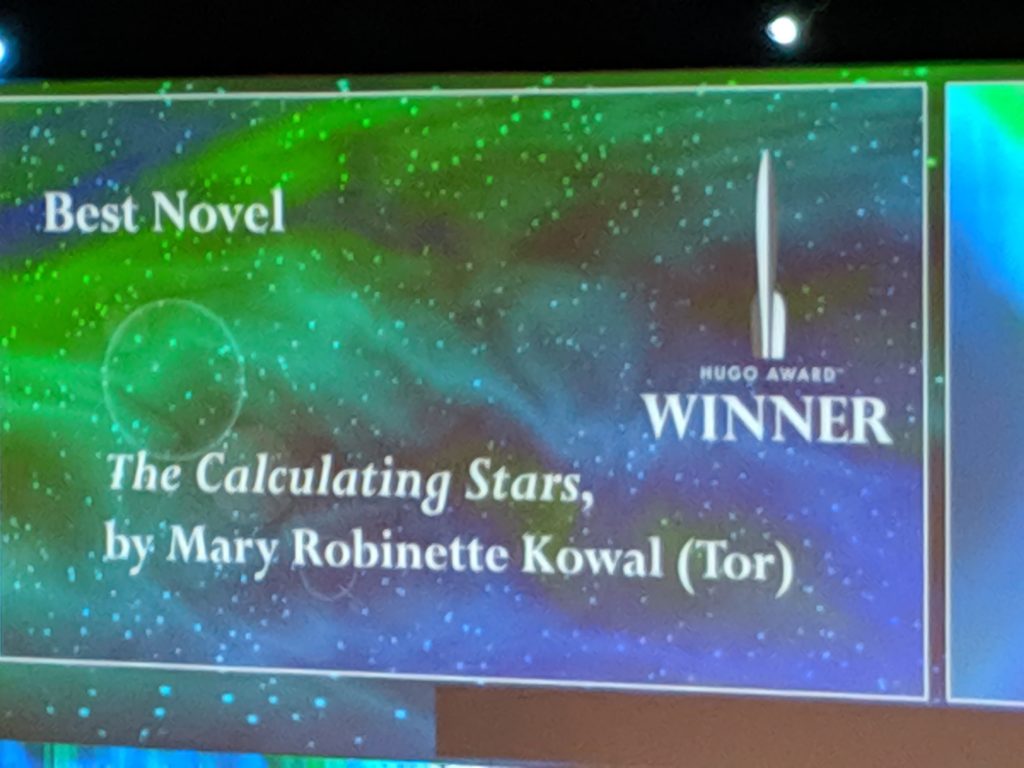
A PDF of the voting results and nomination longlists are available at: www.thehugoawards.org
We headed to Martin’s after the ceremony and almost immediately ran into Carole’s partner John. He told us that the wallet had not been turned in yet and everyone is presuming it is lost for good. Credit cards have been canceled and other friends have offered other help, too. Carole was there, enjoying herself and John reassured us that she was feeling a lot better since that night. We were rather concerned so it was nice to see that she was having a good time.
John also said, “Hey got get a drink at the bar. DC is paying for all of the drinks on their tab!”
I feigned confusion. “Your mean DC Comics?” John gave me one of those resigned looks he make after hearing a bad joke. “Go get a drink,” he shouted over the din.
We got into the nearest queue but the DC tab had already been tapped out so we had to resort to buying our own drinks. Hugo Admin Nichols Whyte sidled up to the bar and in a burst of American generosity, we bought him two ciders, citing his fine work for the con.
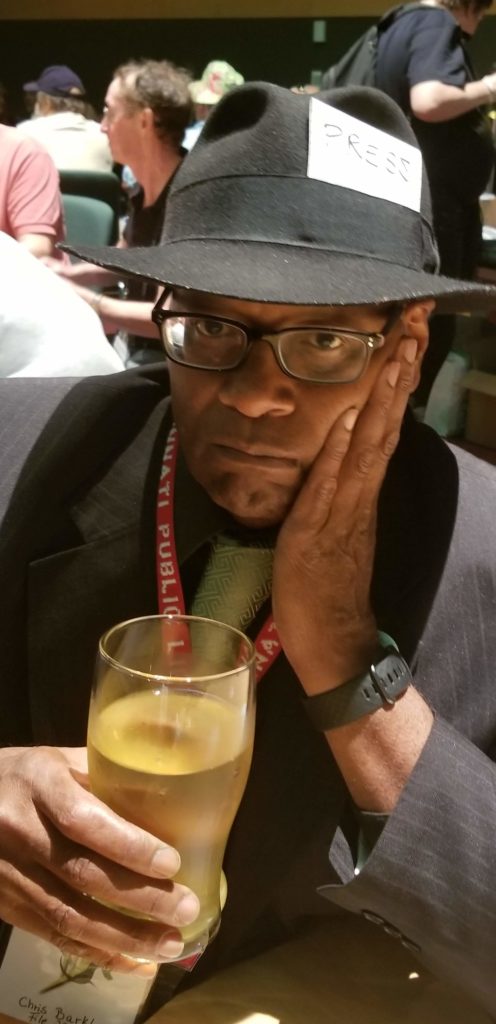
As we were ordering our own ciders our, I was accosted by an older man standing next to me, whom I thought was a complete stranger. But it wasn’t; Jerry Kaufman was a fan we had met previous at the Spokane Worldcon. “So,” her said, “what are you proposing for the name change?”
Now it was my turn to be genuinely confused. “Excuse me?”
“I heard some people talking about it. It was your Facebook post.”
With that I sat down and whipped out my phone and checked the post I had completely forgotten about from two hours ago. While it had not gone exactly viral, it had several “likes” and who knows how many views.
While I sat and posed for a few pictures with my friends, I suddenly realized that I was drinking this cider on an empty stomach, which meant that I was going to be incredibly tipsy in the next five or ten minutes.
I told Juli about my dilemma and after some chit chat with some friends in passing, we bade everyone good night. We stepped into a chilly and damp night. The walk back was bracing and kept me on my feet as we walked back to our apartment.
After fumbling to check the Facebook post and send my esteemed editor a brief, spell check enhanced email, I fell into bed, and, according to Juli, was asleep in two minutes.
P.S. DAY FIVE BREAKING NEWS! I am incredibly PLEASED to report that Carole’s wallet was turned in to the local police station today, WITH THE CONTENTS ALL ACCOUNTED FOR!!!!
Carole and John have already left Dublin for a tour but will be returning to the city on Friday recover the wallet.
Who’s says there are no Happy Endings at Worldcon? A big THANKS to the local citizens and the Dublin Garda for your diligence in this matter…
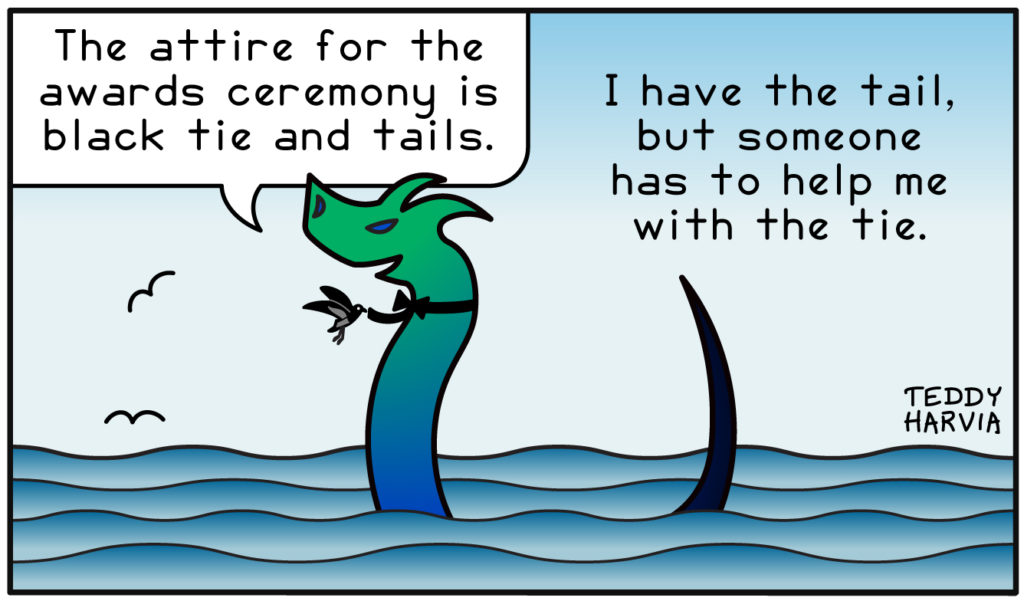
Discover more from File 770
Subscribe to get the latest posts to your email.

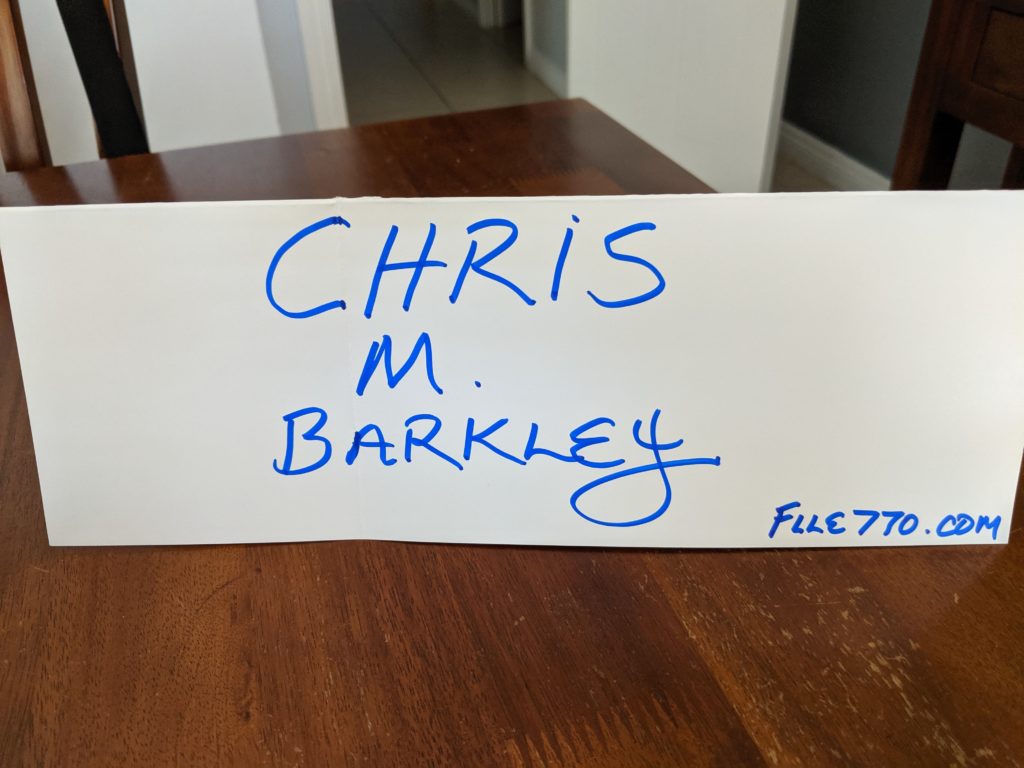
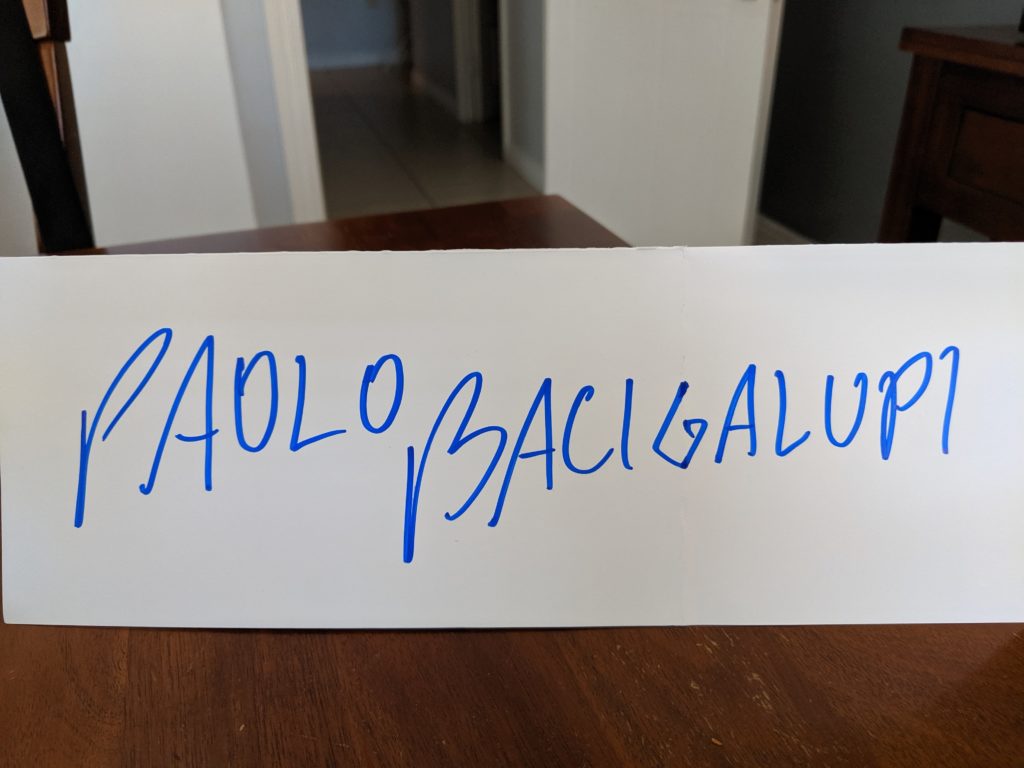
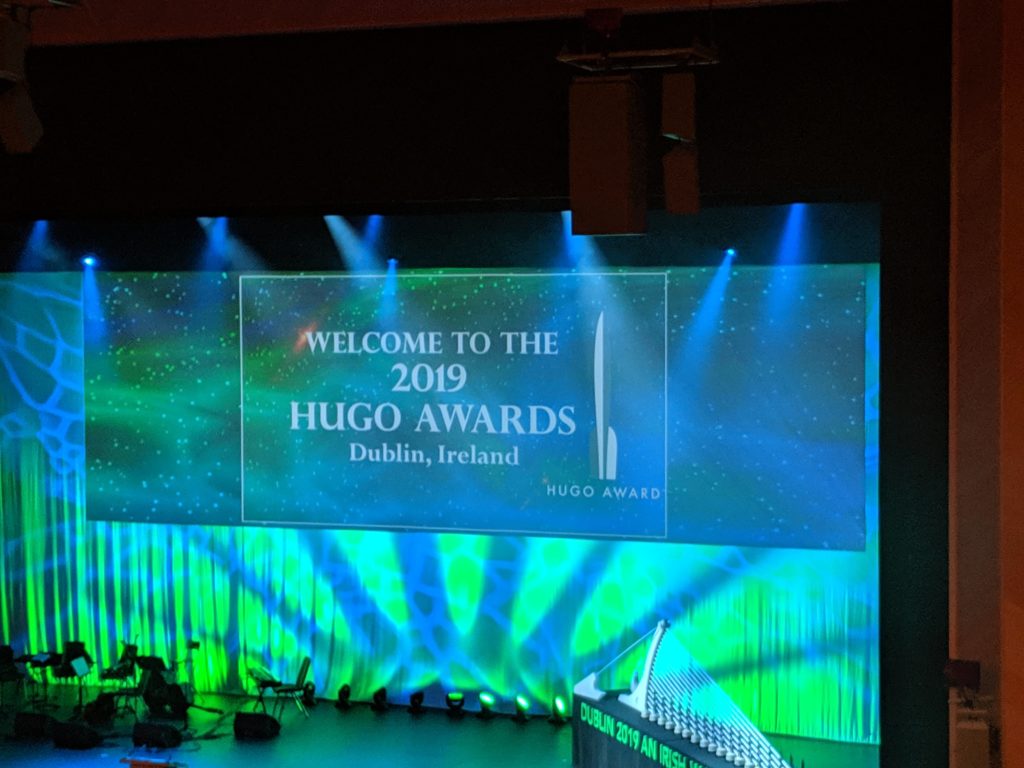
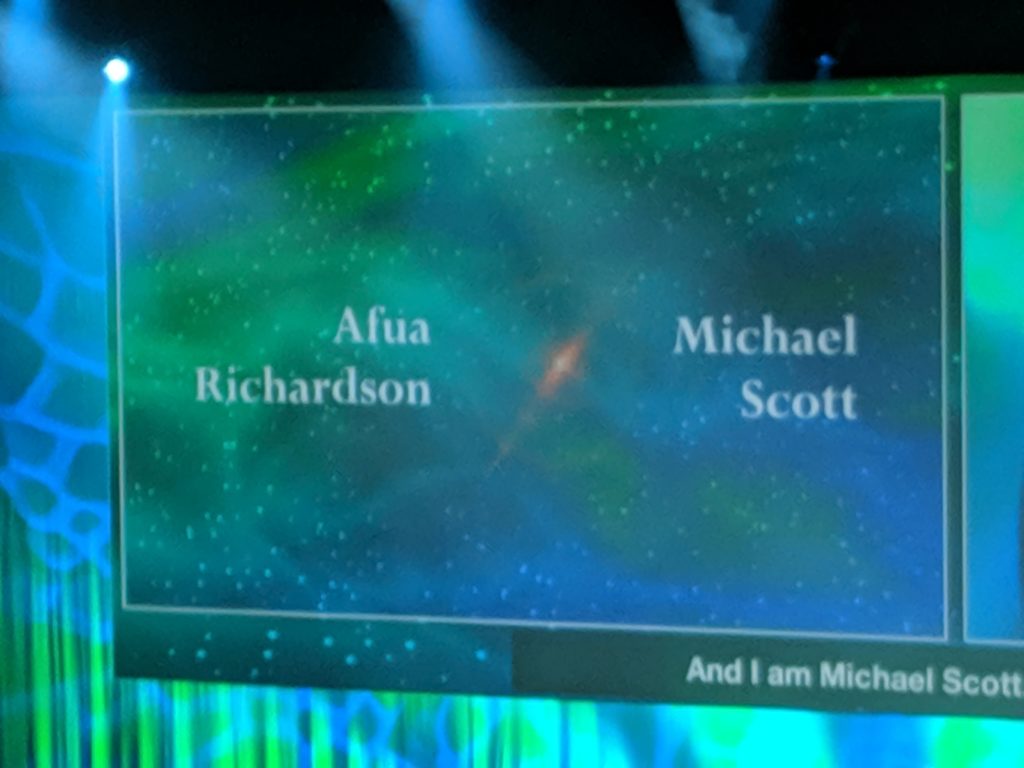
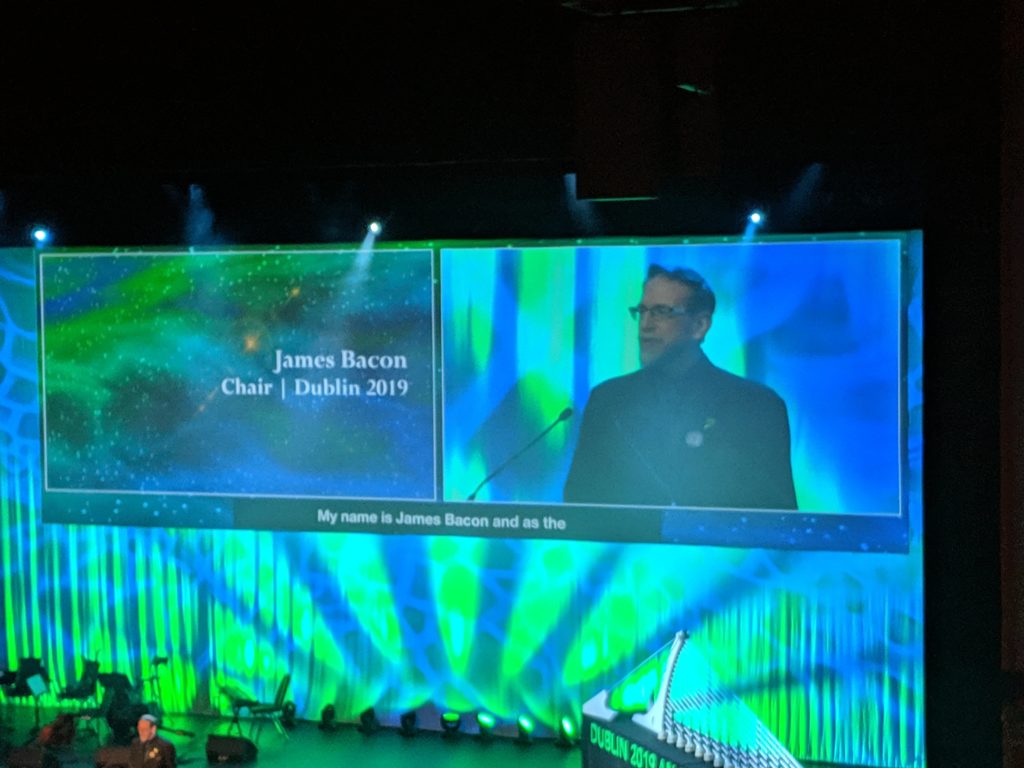
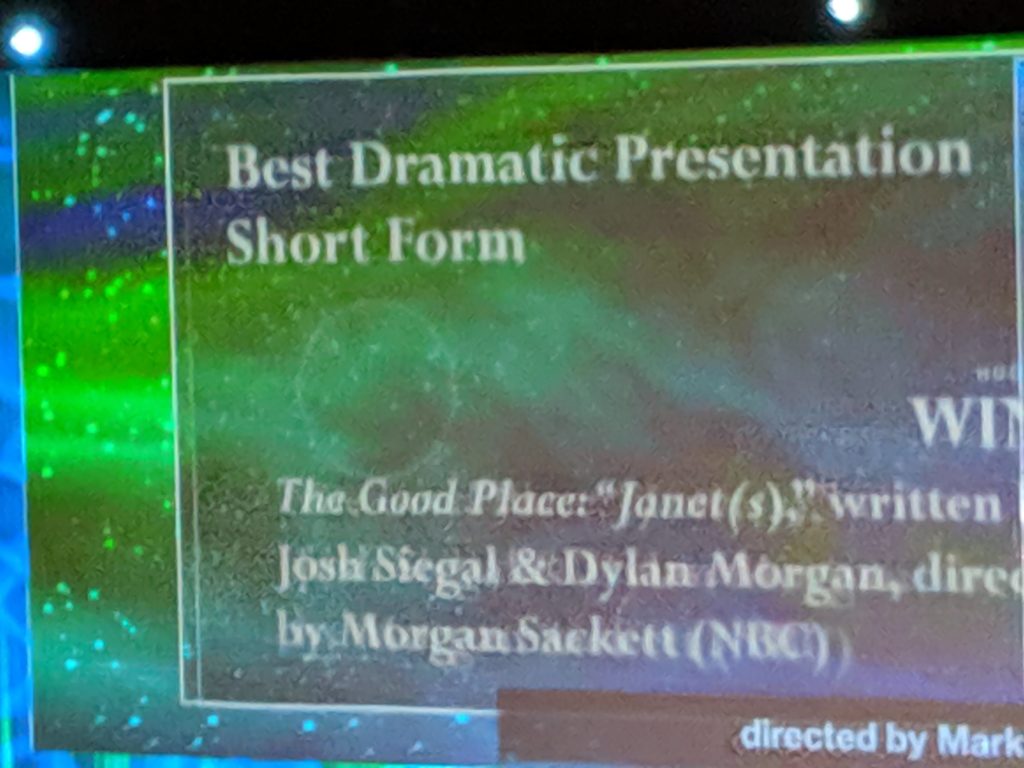
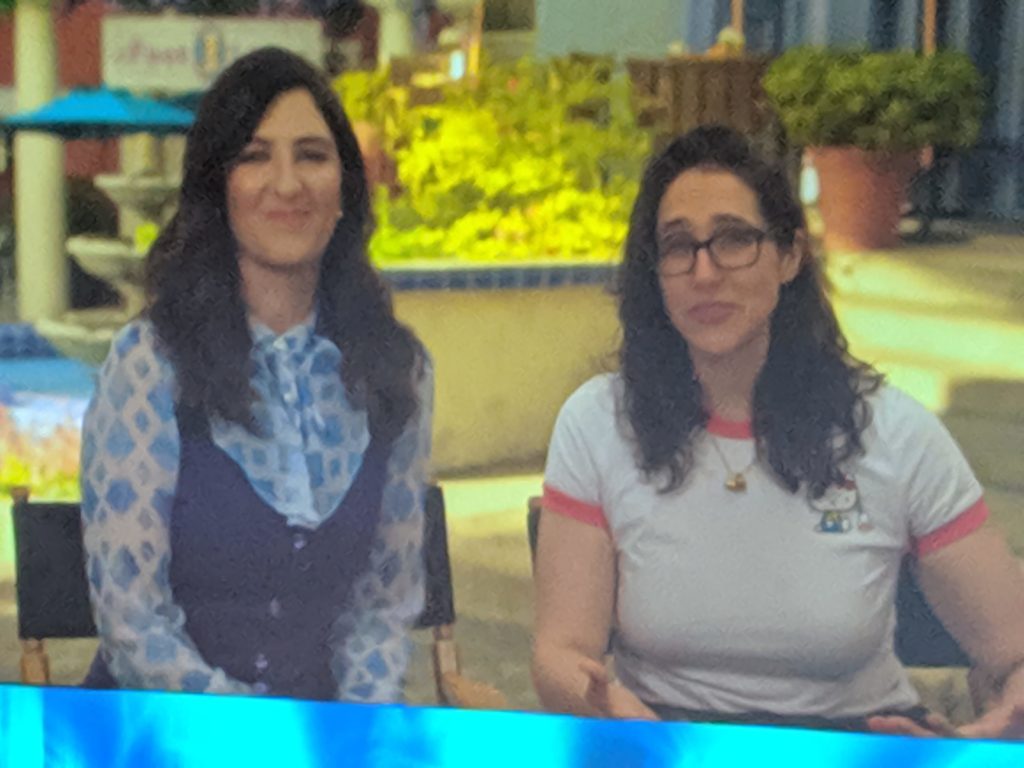
It’s certainly reasonable to predict that people will make the proposal. A lot of Hugo category alterations are driven by people who want their fingerprints on history. You’re also right to leave open that the replacement could be a non-Hugo, as the JWC award is now.
Pingback: Storm Over Campbell Award | File 770
@Paul Fraser: that’s one Ng misspeaking and a lot of your opinion; IIUC, Astounding (and later Analog) were still the best-paying market until Asimov’s got solidly established, so people were writing to Campbell’s standards as long as he was alive. And considering what other editors were buying versus what Campbell was buying, I think it’s fair to charge him with much of the worst wing of the field. And wrt Moorcock’s positions: as I noted, I consider them left — but the Tories are collaborating with fascists and just elected one Prime Minister. wrt Ng’s speech: who died and made you a mind/heart reader? What metric do you use to claim that Ng was attempting to demonstrate character or correctness, rather than stating conviction? And note that old definitions die, sometimes slowly (do you believe “decimate” means killing every tenth?), sometimes quickly.
Paul Fraser: I took at face value that your definition of “virtue signalling” was correct. It is not, or not entirely… Wikipedia and a couple of other dictionaries give this definition too: “The action or practice of publicly expressing opinions or sentiments intended to demonstrate one’s good character or the moral correctness of one’s position on a particular issue.” So, yes, she was. In future you may wish to check the advice you are dispensing is correct, and I should not take things at face value.
You’re still missing the point of the definition. Ng’s speech was not intended to “demonstrate her good character or the moral correctness of her position on a particular issue”.
Ng (as with anyone who gives an impassioned speech about something which is of vital importance to them) does not give a shit about demonstrating her good character or the moral correctness of her position. She cares about the subject and wants to motivate people to pursue change; she is speaking her true feelings, not trying to convince anyone of how moral and correct she is.
The second definition you quoted is the same as the first one I gave you. You just don’t recognize that, because it’s worded differently.
You are welcome to continue to use “virtue signalling” improperly, but don’t be surprised if I continue to call you out on it.
I am always intrigued by people who insist that others’ motivations must be a certain thing. People who steal are convinced that everybody else steals, too. People who cheat are convinced that everyone else cheats, too. Rapists are convinced that everyone else is a rapist (or would be, if they could get away with it). People who argue that an author is a “nobody” because they’ve never heard of or read that author are convinced that no one else has ever heard of or read that author, either.
I figure that the people who use the term “virtue signalling” to refer to others’ actions do so because that is what they themselves do, and they assume that everyone elses’ motivations are the same as their own. They simply can’t conceive that someone might actually passionately advocate for something without having the ulterior motive of convincing others of what a wonderful person they are.
@Paul Fraser
My argument is that plenty of people have called Campbell a fascist or something adjacent to it long before Ng did. I’ve demonstrated that.
I see you’ve come back for a second bite of the cherry on your “virtue signalling” accusation, which is always a red flag.
Campbell was a clear fascist. It is enough to read his views on how an utopian society should be built to recognize that. I can’t see how it is controversial in any way.
@Chip Hitchcock
When Galaxy appeared in 1950 it paid more than Astounding (for those stories that didn’t win a bonus in that latter magazine) and for considerably fewer rights. Astounding had to catch up. The slicks paid more, so did the Star anthologies. Asimov’s didn’t start publishing until several years after Campbell’s death.
As for the rest, if you want to ignore the demographic, social, and cultural factors of the day that is up to you, but every magazine editor between 1940-1970, even the female ones, produced magazines where the contributors were predominantly white males. If you want to lay all that, and the rest, at the feet of an editor who was an increasingly marginal figure, even within his own lifetime, that is up to you.
As for “decimate”, no, I don’t think it only has its historical meaning. However, fascist does not yet exclusively mean what you think it does, i.e. “someone whose political views I strongly disagree with.” Your remarks about Johnson not only degrade the power of the word, but demonstrate you see the world through a particular political lens.
@JJ
My definition was: “The action or practice of publicly expressing opinions or sentiments intended to demonstrate one’s good character or the moral correctness of one’s position on a particular issue.”
Your definition was:
“virtue signalling” is when people say things not because they really mean and believe them, but because they want to earn brownie points with a particular group of people.”
Those mean entirely different things.
I’m sure Ng was sincere but that doesn’t mean she wasn’t also virtue signalling—intemperate, ill-considered and divisive grandstanding* focuses attention on the speaker, not on what they are saying.
Not to mention behaviour that manifestly violates the convention’s CoC—not that anything will come of that of course now that the convention is in the rear-view mirror. Of course, CoCs were only ever intended to control gropy guys and those who use the wrong pronouns, they were never intended to silence the righteous (yes I am being sarcastic, and no, those first two behaviours should not be permitted).
@Mark
I don’t care who has called who a fascist, the word has a specific meaning.
As for your second bite of the cherry/red flag comment—if this lets you ignore the information which made me to change my mind then I’m sure you’ll find that convenient. Some of us actually listen to what is being said and look at the evidence available, process the information, and adjust our opinions accordingly. I realise that this will probably sound like a ghastly idea to those with strong tribal or political opinions, but if someone later makes a good case I may change my mind again. The horror.
A minor point: Worldcon 76 in San Jose was not ConJose. That event took place in 2002.
You may or may not agree with our reasoning for how to brand our 2018 Worldcon, but please use our actual name. Thanks!
Paul Fraser:
I think you are projecting your own problems on others. If you are trying to argue that Campbell was a man of his time, you are clearly ignoring all the demographic, social and cultural changes that happened after the second world war.
Campbell was not a man of his time. He wasn’t even a supporter of equal right to vote. He was far, far away from the mainstream with his ideas how society should be built. His discrimination wasn’t unconscious bias, it was directly connected to his ideology.
“The weather this morning was brilliantly good. And then came the rain squalls. I had such high hopes. Is this what makes the Irish, Irish?”
Pretty much. There are a few oft-repeated jokes about the weather here: “If you don’t like the weather in Ireland, wait 5 minutes”; “There are three types of weather here: raining, it’s just finished raining, and it’s about to start raining”; and “you’ll experience the 4 seasons in a day if you stand outside”
@Paul Fraser: the issue Ng raised was not simply who the writers were, but who they were addressing — and worse, supporting as the dominant force. In this Campbell was on the far wing. Your claim about my definition of fascism is bull (not to mention a typical right-wing slander of anyone who objects to the vilest right-wing policies); Johnson was a believer in unbridled personal power while he was still a minor (by testimony of his teachers), and has not changed.
@Paul Fraser
As I’m quite sure you’re aware, “virtue signalling” is used in practice as a general-purpose insult to demean someone taking a principled stand. Whatever technical definitions you can or can’t find on the internet don’t prevent me and everyone else here reading what you wrote and understanding exactly what you meant, and then disagreeing with your attempt to dismiss Ng’s principled stand.
In a similar vein, Fascist doesn’t have a single specific meaning – it meant different things to e.g. the Italian, British and German flavours in the early 20th century, it meant different things to the later species of fascists, it means still further different things today. Ng used it advisedly, with a meaning sharedv and understood by a great number of other people – as I have demonstrated with actual evidence already.
What’s your actual endgame here? Even if you assemble some argument that Campbell wasn’t technically a fascist because he didn’t have a snazzy armband, or didn’t subscribe to corporatism, or whatever you like, you are left arguing that Campbell was merely a sexist racist authoritarian. Exactly how does that detract from Ng’s wider point that maaaaybbeeee we ought to stop celebrating that sort of thing?
(tldr: I know what Ng meant when she said “fascist” and I know what you meant when you called that “virtue signalling”)
Paul Fraser, I see that you are intent on insisting that you know what Ng’s motivations were for her speech, and that she had an ulterior motive in making it. As Mark says, it’s clear that you are trying to denigrate Ng’s speech as something other than her genuine stance on the issues.
I don’t see any point in engaging further with you, since you are not actually the mind-reader you are claiming to be, and you very obviously have an agenda to try to discredit Ng.
It was absolutely clear that Ng’s speech was heartfelt and sincere. Undeniably a “rant” (que another blog) but that’s what happens when people are engaged.
While one might quibble that Campbell was not a “fucking fascist” (a more extreme categorization than the “garden variety” fascist?), it is a widely held view (perhaps not the majority?) that he was indeed some flavor of fascist.
Her speech might have been considered to be somewhat indecorous, but saying what many people believe to be true cannot possibly be a violation of the con’s “CoC”, especially given that Campbell wasn’t even present.
Pure synchronicity, but I do appreciate the fact that the t-shirt I was wearing in that picture was the one with the quote from Macbeth.
Pingback: Dern — File 770’s Dublin 2019 Coverage | File 770